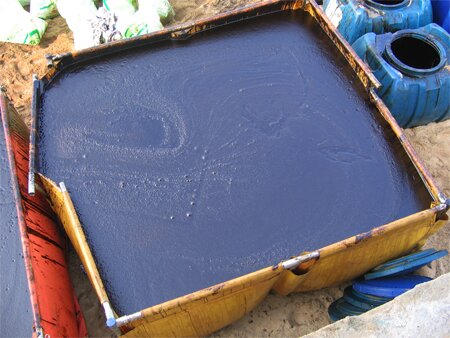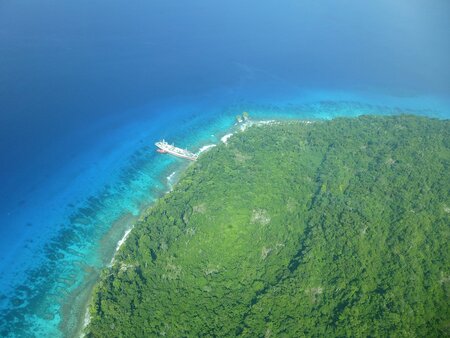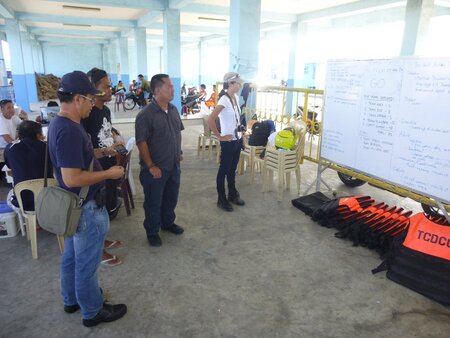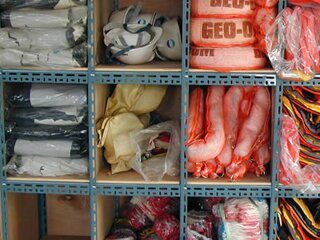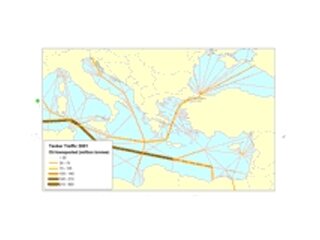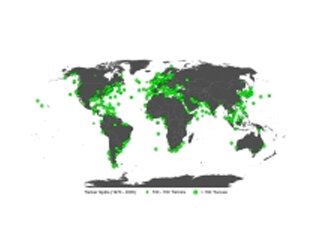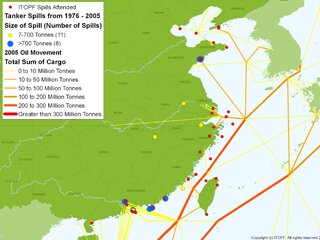Documents & Guides
Explore a variety of topics about marine spills, response and compensation matters in the pages below.
Each topic and area of interest provides access to more detailed documentation that is freely downloadable.
This includes our 18 Technical Information Papers which are fully illustrated with photos and diagrams and are available in several languages.
Compensation for Ship-source Marine Oil Spills
What legal arrangements and sources of compensation are available for a spill from a ship?
Disposal
What planning and waste management systems need to be put in place to reduce the volume of oily waste for treatment or disposal?
HNS
What are the specific chemical response strategies for responding to a Hazardous and Noxious Substance spill, and what are the potential effects on human and marine life?
Contingency & Response Planning
What information is needed for an effective oil spill contingency plan? How can aerial observation and protective strategies assist with response operations?
Economic Effects
Which industries might suffer temporary economic losses and loss of market confidence?
Fate of Oil Spills
What happens to oil in the marine environment over time when spilled at sea? How do different factors such as volume and physical and chemical properties affect the fate of oil spills?
Explore the Resources
Comparison and assessment of waste generated during oil spills (2014)
Experience has shown that the most time-consuming and costly component of a response to an oil spill is often the treatment or disposal of collected waste. The amount of waste generated is dependent on many factors, some which may be controlled more readily during the response.
DISCOBIOL: Assessment of the impact of dispersant use for oil spill response in coastal or estuarine areas (2014)
The DISCOBIOL research program aims to provide practical recommendations on dispersant use in coastal and estuarine areas by acquiring relevant (in terms of likely dispersed oil concentrations) and robust experimental information on the impact of mechanically and chemically dispersed oil on living resources.
Categories: Response Techniques, Dispersants, Papers
Applying international standards in response to oil spills in remote areas (2014)
This paper discusses the meaning of “international standards” for oil spill response in the context of remote operations. Practical examples are drawn from remote spills world-wide, including incidents in Tristan da Cunha, Madagascar, and Papua New Guinea.
Categories: Africa, Americas, Oceania, Planning & operations, Papers
What makes a good response? (2014)
What defines a successful response? Is it dependent upon satisfying potential critics? Does it depend on money saved or spent? Is it defined by avoiding or mitigating pollution damage? Or is it all of these things?
Categories: Planning & operations, Papers
Moving forward in shipping (2005)
The Chairman of ITOPF, Dr Helmut Sohmen of World-Wide Shipping Group, delivered the Keynote Address – Moving Forward In Shipping – at the centenary celebrations of BIMCO, on 23rd May 2005
Category: Papers
International responsibilities: Are we our brothers' Keeper? Oil spill preparedness and response: The role of industry (1997)
Government and the shipping and oil industries have invested heavily in creating and maintaining expensive oil spill response systems against a background of decreasing numbers of intermediate and major oil spills worldwide.
Categories: Planning & operations, Papers
Oil spill risks and the state of preparedness in the regional seas (2003)
The International Convention on Oil Pollution Preparedness, Response and Co-operation, 1990 (OPRC Convention) defines the basic elements for co-operation between government and industry in marine pollution response. This paper reviews the current status of the partnership between government and industry for dealing with spills arising from the transportation of oil by sea.
Categories: Contingency Planning & Advice, Papers
Oil pollution risk assessment and preparedness in the East Mediterranean (2005)
The East Mediterranean is an area of high oil traffic because it is an important transit centre between Middle Eastern/Russian oil and the western European countries/USA. Recent traffic developments show that the importance of this centre is expected to increase. ITOPF and REMPEC carried out a joint risk assessment study of the area.
Category: Papers
Use of GIS for assessing the changing risk of oil spills from tankers (2007)
Assessing the risk of oil spills from ships has long been of interest to the maritime industry. Many factors affect the frequency of accidental oil spills, including the amount of oil transported and the combined effect of local conditions. The approach of this study is to use a GIS platform to model the amount of oil transported on a regional scale, thus facilitating the analysis of spatial/temporal variations and enabling the integration of site-specific data.
Category: Papers
Assessing the increasing risk of marine oil pollution spills in China (2008)
As the Chinese economy continues to develop at a rapid pace, shipping has also increased significantly over recent years. This rise in traffic brings a greater threat of oil pollution from vessels. This paper looks at the risks associated with increased traffic and developments taking place to meet the threat of marine oil spills in Chinese waters.
Category: Papers

